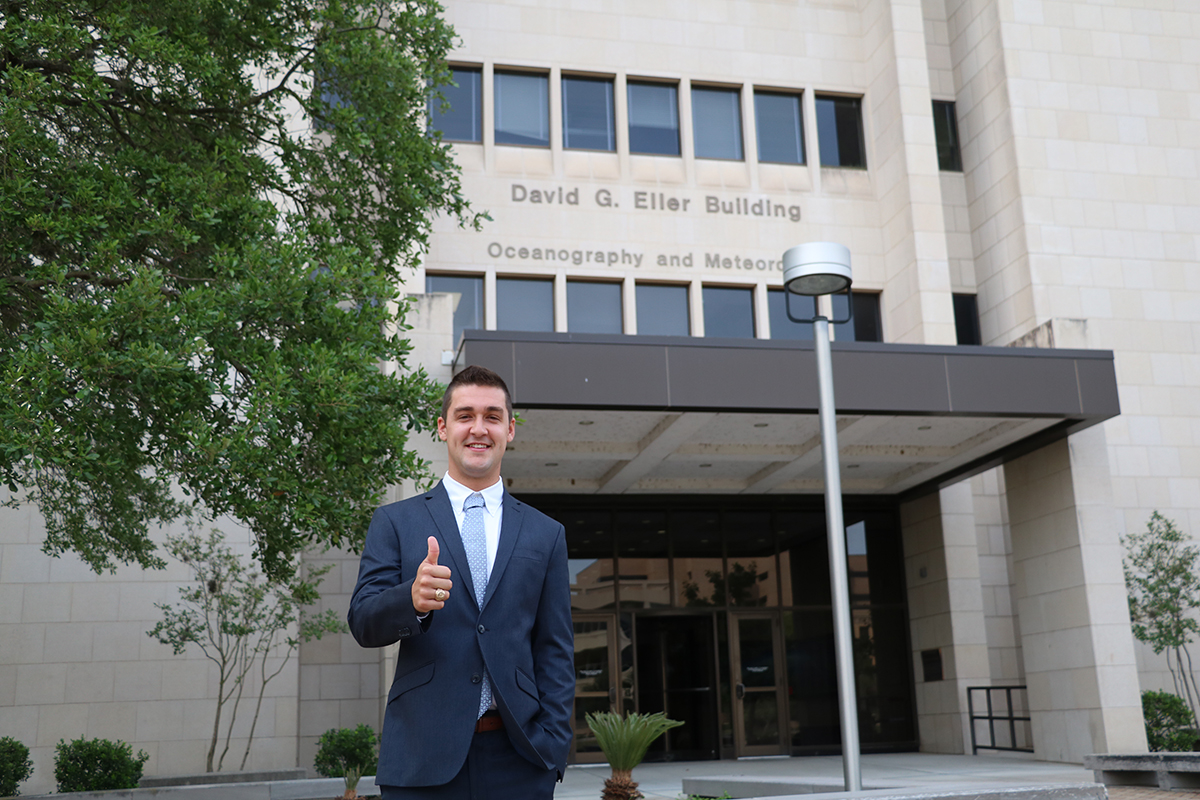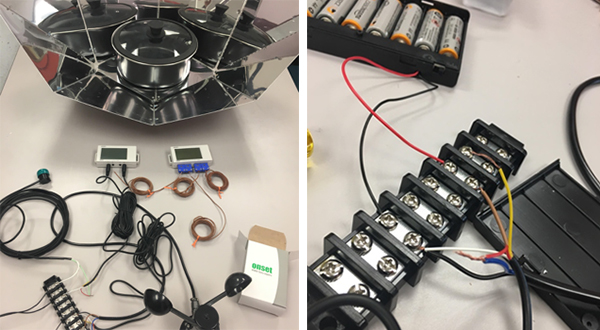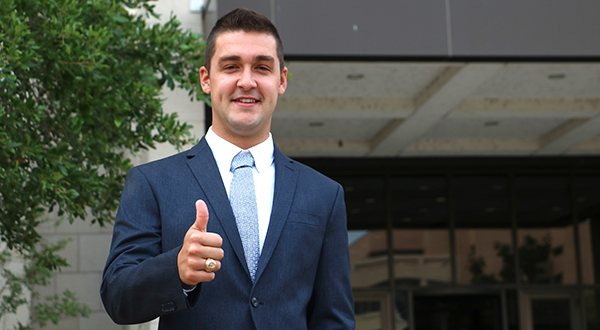Meteorology Student Researches Solar Cooker Efficiencies And Possibilities
Conducting multiple undergraduate research projects gave Ethan Williams a better understanding of the meteorology field.
Jun 14, 2018

Ocean currents, storm surge measurements and solar cookers might sound like odd topics for atmospheric sciences students to study, but for meteorology senior Ethan Williams, they have been a major part of his undergraduate journey.
Ethan Williams ‘18 is from Tomball, Texas, and undergraduate research has been a highlight of his time in the Department of Atmospheric Sciences at Texas A&M University.
As an undergraduate research assistant for Dr. Henry Potter, an assistant professor in the Department of Oceanography, he has conducted research on hurricanes and tropical cyclones.
“I’ve done a case study on Hurricane Ike and what the currents looked like during that storm, and what it looked like when all that water got pushed up against the sea wall and coast in general,” Williams said. “I also did a tropical storm surge project, which helped to create a better index to use when predicting the storm surge for tropical cyclones and storms.”
“Storm surge causes the greatest threat to life and property along the coast during a hurricane, and Ethan’s research provided valuable insight into the parameters that contribute most significantly to storm surges extent, potentially leading to improved prediction,” Potter said.
Williams has also worked on green roof research projects with Dr. Don Conlee, a professor in the Department of Atmospheric Sciences and a few other undergraduates.
“The green roof project involves instrumentation and data logging and other measurements, to give students in-field experience,” he said. “We do the measurements for the data on the roof of the Architecture Building, where they have a few plots of vegetation and plants native to the Brazos Valley.”
Solar Cookers Could Benefit People All Over The World
With those undergraduate research experiences completed, Williams has now begun one on his own, with Potter’s advisement and the help of Conlee.
In his current research project, Williams is measuring the effectiveness of solar cookers. A solar cooker “absorbs sunlight, turns it into thermal energy, and then heats a target so you can boil water or cook food with it,” he explained.
The solar cooker is equipped with basic weather measuring devices. “It has an anemometer for wind speed measurements, a pyrometer for solar radiance measurements, thermocouples for temperature measurement, and we are looking into a humidity sensor for it.”


“So that's step one of the project, and step two would be to have a platform that you put these solar cookers on that rotates with the solar maximum as the day goes on,” Williams said. “Then you could measure the efficiency, how much it heated up a liter of water or whatever it might be.”
“To measure efficiency, you need to know what the current conditions were – how sunny it is and what the current temperature is, the humidity at the time and what was the wind speed, and all of those things, that is why the measuring devices are important.”
Potter said that Williams’ undergraduate research work resulted in both valuable science and beneficial hands-on experience for Williams.
“Viability studies, such as the one Ethan has been working on are necessary to demonstrate that solar cookers are a suitable alternative to biomass burning and are an essential step towards getting organizations to fund their global distribution,” Potter said. “Ethan got a lot of hands-on experience building the solar cooker testing station, especially with meteorological instruments, data loggers, and wiring.”
Solar cookers can be set up in basically any location around the globe, and could be especially useful for people in developing countries, he said. “Some people rely on boiling their water and cooking their food on a traditional wood-burning fire. That has impacts on the environment in the form of biomasses, releasing aerosols and particles that are harmful to the environment. It can also be difficult to find the resources needed.”
A solar cooker could help make boiling water and cooking easier, by simply using the sun.
Learning The Value Of Undergraduate Research
“These sorts of projects are great because they get students away from their computers and provide the opportunity for self-guided learning and problem solving,” Potter said.
Williams agreed that all of his time spent conducting undergraduate research has taught him valuable lessons for the future.
“The in-field instrumentation work that I have done, learning how all those things work, has been interesting,” Williams said. “You can click on something online and get a wind reading or temperature, but to see how that’s all done and how it works is really cool.”
“I feel like I have gotten a good understanding of my field, one that I would not have been able to get solely in the classroom.”
Williams graduates in December of this year and hopes to pursue a career with a private weather forecasting company or the National Weather Service.
By Taylor Fuechec ’18
